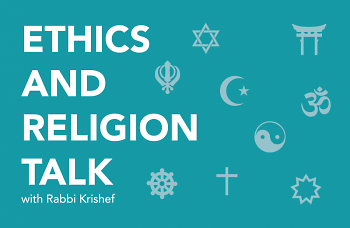The Rev. Steven Manskar, pastor of Trinity United Methodist Church in Grand Rapids, responds:
“The Nicene Creed tells us the Holy Spirit is ‘the Lord, the giver of life, who proceeds from the Father and the Son, who with the Father and the Son is worshiped and glorified, who has spoken through the prophets.’ The Holy Spirit is God in us as Jesus Christ is God with us.
“We see the Holy Spirit active in creation. ‘In the beginning when God created the heavens and the earth, the earth was a formless void and darkness covered the face of the deep, while a wind from God swept over the face of the waters.’ The Spirit was that ‘wind from God’ participating in creative, life-giving work of God. The Spirit inspired and led Abraham and Sarah, Moses and Miriam, David, the prophets, Mary, Jesus, and the apostles.
“The Holy Spirit is God working in human lives, seeking to awaken them to God’s love and justice. Once awakened people become aware of their sin. The Holy Spirit brings the gift of faith, which is trust in God who became one of us in the life, death, and resurrection of God’s Son, Jesus Christ. The Spirit reveals God’s forgiveness and helps us accept that forgiveness for ourselves. Once forgiveness is accepted, the Spirit begins the work of repairing the damage sin has done to the image of God in the human heart. The Spirit, by faith, leads and inspires us to cooperate with that healing work. The fruit of this restorative work in us is love, joy, peace, patience, kindness, generosity, faithfulness, gentleness, and self-control (Galatians 5:22-23).”
Rev. Ray Lanning, a retired minister of the Reformed Presbyterian Church of North America, responds:
“Reformed Christians believe that the Holy Spirit ‘is true and co-eternal God with the Father and the Son’ (Heidelberg Catechism, Q. 53). As a true son of the covenant, Christ affirms that there is but one true and living God: ‘Hear, O Israel: the LORD our God is one Lord’ (Mark 12:29). But Christ also teaches that in the Godhead there are three distinct persons, the same in essence, power, glory, and all other divine perfections, such as wisdom, love, justice, and truth. Hence Christ commands, for example, that Christians be baptized ‘in the name of the Father, the Son, and the Holy Ghost’ (Matthew 28:19).
“All Christians confess that the Holy Spirit is ‘the Lord and Giver of life.’ In Scripture we see the Holy Spirit using His sovereign power to bring all things into being and give life to all living things (Genesis 1:2, Psalm 104:30). Accordingly, Christ, as the incarnate Son of God, was ‘conceived by the Holy Ghost, and born of the Virgin Mary’ (Matthew 1:20). Holy Scripture itself is the product of the Spirit’s work: ‘Holy men of old spake as they were moved by the Holy Ghost’ (I Peter 1:21).
“When the gospel is preached, the Holy Spirit uses it to work faith in our hearts. He enlightens our minds, renews our hearts, and inclines our wills to embrace Christ as Savior and Lord. As our Sanctifier, the Spirit dwells in us, abides with us, and applies to us all that we have in Christ and the benefits of His death and resurrection. The Spirit gives us life, light and understanding, love and all its fruits, and keeps us walking in the way that leads to eternal life.”
Fred Stella, the Pracharak (Outreach Minister) for the West Michigan Hindu Temple, responds:
“In the 19th century, when Hindu scholars began looking at Christian texts, some resonated with the idea of the Holy Spirit (or Ghost). Hindus would not say that there are 3 persons in one God, but do say that there are 3 aspects. There is that ‘part’ of God which exists transcendentally, in a vibrationless ‘region.’ However, God also exists as this vibrating universe. The final aspect would be that which is the bridge between those aspects. Many westerners have heard of Hindus (and Buddhists) chanting ‘OM.’ This sacred syllable is considered that ‘part’ of God that more or less bridges the transcendent with the imminent. By deep meditation it is taught that one will internally hear this sacred presence.”
The Reverend Colleen Squires, minister at All Souls Community Church of West Michigan, a Unitarian Universalist Congregation, responds:
“A good number of Unitarian Universalists believe in an understanding of God or higher power, and some UUs identify as Christian UUs or followers of Jesus, but I am unaware of UU who specifically follow the Holy Spirit as it relates to the Trinity. That being said we do generally use expressions like ‘The Great Mystery of Life’, or ‘Spirit of Life’, or ‘Spirit of Love’ to describe moments of awe and wonder or as expressions of joy and kindness found in our shared humanity.”
This column answers questions of Ethics and Religion by submitting them to a multi-faith panel of spiritual leaders in the Grand Rapids area. We’d love to hear about the ordinary ethical questions that come up in the course of your day as well as any questions of religion that you’ve wondered about. Tell us how you resolved an ethical dilemma and see how members of the Ethics and Religion Talk panel would have handled the same situation. Please send your questions to
[email protected].
The Rapidian, a program of the 501(c)3 nonprofit Community Media Center, relies on the community’s support to help cover the cost of training reporters and publishing content.
We need your help.
If each of our readers and content creators who values this community platform help support its creation and maintenance, The Rapidian can continue to educate and facilitate a conversation around issues for years to come.
Please support The Rapidian and make a contribution today.
